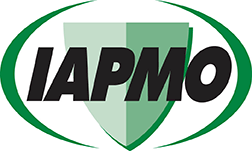Featured Partner: IAPMO
SBB is made possible by the contributions, support, and active participation of its Partner organizations.
The International Association of Plumbing and Mechanical Officials (IAPMO) has been an SBB Partner since 2010.

Scope
The International Association of Plumbing and Mechanical Officials has been protecting the public's health and safety for more than eighty five years by working in
concert with government and industry to implement comprehensive plumbing and mechanical systems around the world.
The IAPMO Group is a complete service organization, providing code development assistance, industry-leading education, plumbing and mechanical product
testing and certification, building product evaluation and a manufacturer-preferred quality assurance program. Each component of the IAPMO
Group works toward playing an integral part in protecting the health of people everywhere.
As a membership-based association, IAPMO is proud to utilize an open consensus process in the development of its Codes including the Uniform
Plumbing Code,® Uniform Mechanical Code,® Uniform Swimming Pool, Spa and Hot Tube Code,® and Uniform Solar Energy Code.® The IAPMO Z series of
standards are developed utilizing an ANSI consensus process.
IAPMO R&T offers third-party certification for plumbing, mechanical and solar products. Also accredited by ANSI, this conformity assessment body offers quality assurance and continuous compliance programs. Working closely with IAPMO R&T is the IAPMO R&T Laboratory. Accredited to ISO/IEC 17025, this test lab is capable of testing to more than 400 standards as well as providing special services such as research and development, training, quality assurance, failure analysis, and witness/field testing.
Standard/Conformance Tools
The American National Standard (ANS) designation of IAPMO's Uniform Codes has been a tremendous asset in the global market.
Being able to offer to another country a base model code, which has been developed under an ANSI-accredited consensus process, is quite significant and
has allowed IAPMO to introduce programs that will directly benefit the health of the nation with which it works. The most recent example is Indonesia.
IAPMO has long held a relationship with representatives from the National Standardization Agency of Indonesia (BSN). In the summer of 2013, IAPMO
and BSN met to formally discuss the BSN's desire to develop a plumbing code that would be adopted and enforced throughout the country.
Shortly afterward, an agreement was finalized by both parties and IAPMO's work began. IAPMO was awarded two grants in September 2013.
The first grant was from the U.S. Department of Commerce's International Trade Administration's (ITA) Market Development Cooperator Program (MDCP).
The grant is intended to increase the competitiveness of the U.S. plumbing supplies industry abroad by generating exports to Indonesia.
Working with ANSI, the second grant was awarded as part of a U.S. AID Standards Alliance project to assist officials in Indonesia in adopting,
implementing and enforcing a plumbing code – the Uniform Plumbing Code of Indonesia.
Both of these grants help fund the IAPMO/BSN project, known as Water for Indonesia Now (WIN), one of the first projects to be funded by the
Standards Alliance. The WIN project is well underway with a targeted date of late 2014 to introduce the new UPC of Indonesia.
IAPMO publishes numerous plumbing standards and codes. The items listed below are just a sampling of IAPMO's standardization work.
Click here for additional
IAPMO standards and codes.
Industry Sectors Served
Plumbing, manufacturing, utilities, water and waste management
Contact
International Association of Plumbing and Mechanical Officials (IAPMO)
4755 E. Philadelphia Street
Ontario, CA 91761
Web: www.iapmo.org
E-mail: iapmo@iapmo.org
Phone: 909-472-4100
Fax: 909-472-4150